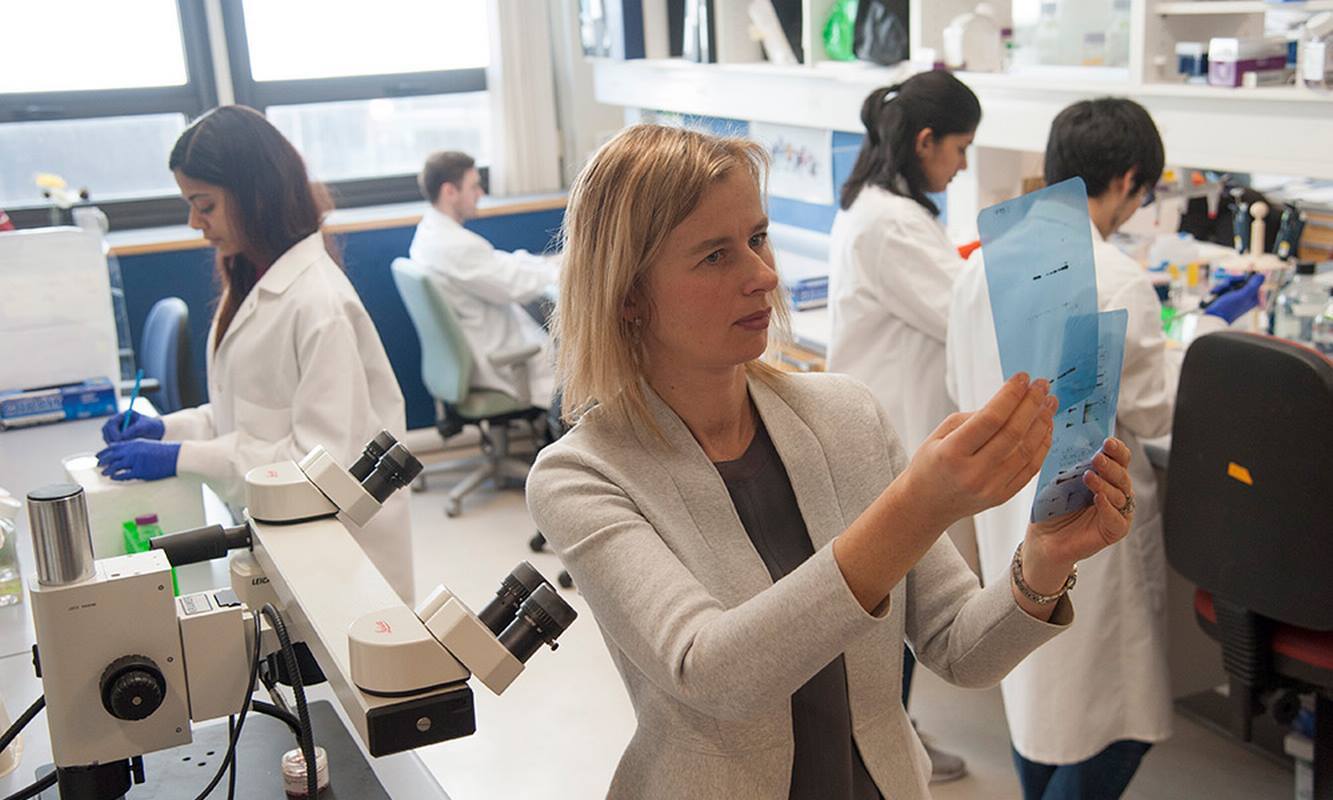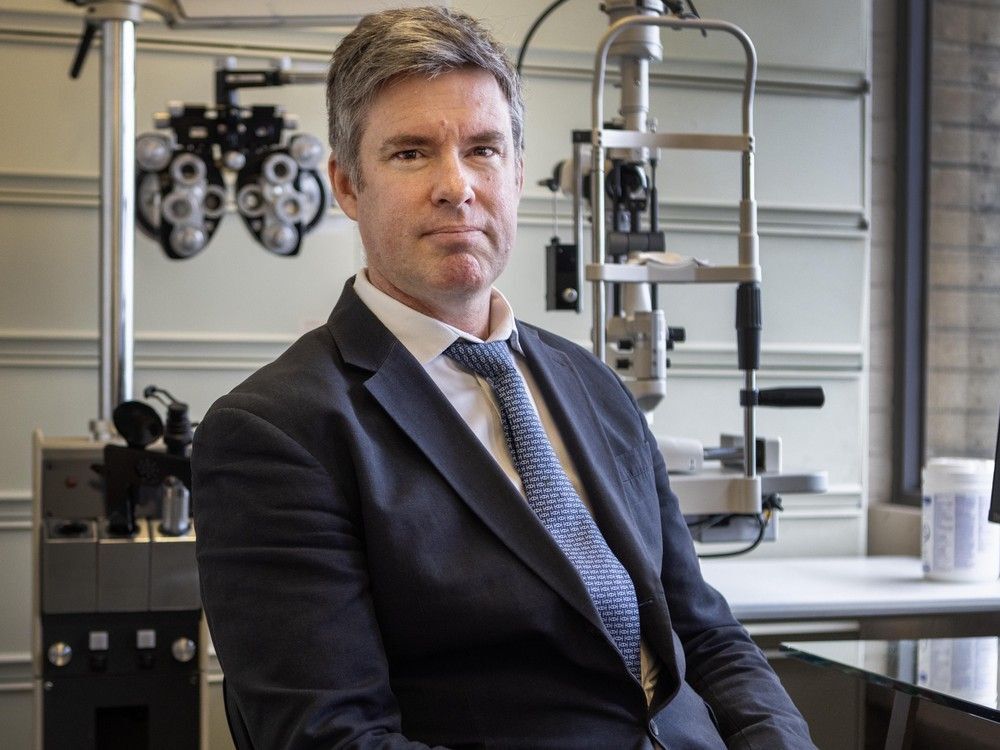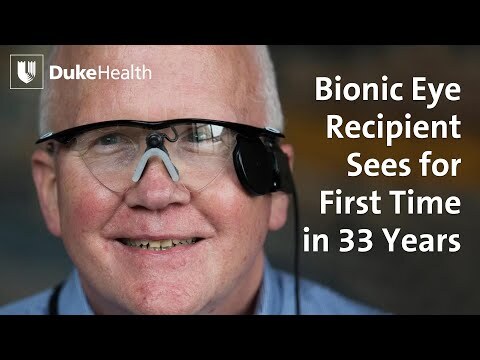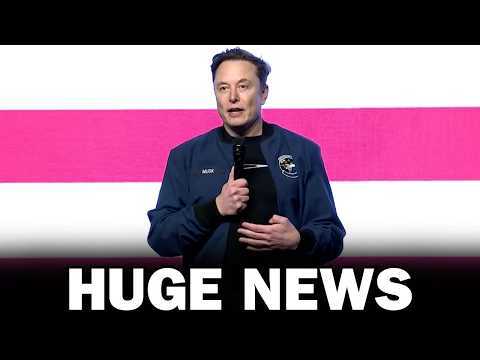So if web designers do too little in terms of #Accessibility they're wrong. If they do too much, they're equally wrong. No wonder some don't even try. #DamnedIfYouDoDamnedIfYouDon't. And while perhaps the larger issue may in fact be lack of training and awareness for those who are developers, designers, and coders; we should also remember the fastest increasing sector of those with #VisionImpairments or #Blindness may in fact be older people who either have to learn to embrace tech they've been familiar with from an entirely new angle or those who aren't familiar at all. I'm not saying it's simple by any means. But I've always found it helpful to remember that just because something comes easily to me doesn't mean it is so for all. Just my two cents literally no one may want, need or ask for in response to something I just read.
Recent searches
Search options
#blindness
Please don't fret: even after your Neuralink Blindsight brain implant fails beyond repair you can still use The vOICe vision BCI https://www.artificialvision.com/neuralink.htm but better start training before the need arises. It's much like learning a foreign language.
I am working on creating a handbook that describes the assistive technologies available in the FreeBSD operating system, which will be freely available online for anyone to consult. Currently, the effort is focused on gathering and documenting accessibility features for visual impairments, and it is sponsored by the @FreeBSDFoundation
If you are interested in the topic, a public repository is available for suggestions and corrections: https://gitlab.com/alfix/freebsd-accessibility
(flashback from 2014, over a million views) YouTube video about using the Argus II retinal implant for the very first time: Bionic Eye Recipient sees for first time in 33 years https://www.youtube.com/watch?v=CiyGOUHD2nI #BCI #NeuroTech #blindness
Elon Musk hopes later in 2025 to do the first Neuralink Blindsight brain implant for a blind human; "I want to set expectations appropriately", low resolution like Atari graphics https://www.youtube.com/watch?v=rFr40WENVTk&t=4863s #BCI #NeuroTech #blindness
Would an all-foley audio production be the "blind version" of a #silentFilm?
Moreover, unlike with Neuralink, there is quite a bit of scientific literature based on use of The vOICe, although we still have important open questions that we would like to see addressed https://www.artificialvision.com/literature.htm especially regarding mental imagery engineering. #neuroscience #blindness
Unlike what you hear in hyping (Musk/Tesla-sponsored?) YouTube videos like https://www.youtube.com/watch?v=DxsWVl3topE and https://www.youtube.com/watch?v=qGouYWsYDW0, the real competitor for a Neuralink Blindsight brain implant for restoring vision to the blind is not the Gennaris Bionic Eye brain implant from Australia nor the ICVP Intracortical Visual Prosthesis from Illinois Institute of Technology from the US, but The vOICe vision BCI glasses,
Commuting challenges
I was impressed by the runner and the cyclists but why was the air commuter allowed to condemn herself out of her own mouth - balance?
‘I’m aware that in sustainability terms, my commute is terrible. My hope is that my job has a bit of an offset and I might have an impact on future fashion professionals. I teach and research plus-size fashion and I’m interested in sustainability. ‘ (Ontario-NY commute)
https://www.theguardian.com/money/2025/mar/02/rush-hour-rewards-how-extreme-is-your-commute
No way that he could have done this with a retinal implant (he is blind from ROP, retinopathy of prematurity) or with a brain implant such as Elon Musk's Neuralink Blindsight.
I'm visiting the #USA for the #CSUNATC25 conference. Buying coffee, I got the perfect #coin in change for a #blindness / #accessibility related conference: a 2003 Alabama quarter featuring Helen Keller.
This was the first US circulating coin to feature a representation of Braille (there was a non-circulating 1996 Paralympics coin).
A little on Helen Keller from Wikipedia: "American author, disability rights advocate, political activist and lecturer. Born in West Tuscumbia, Alabama, she lost her sight and her hearing after a bout of illness when she was 19 months old.
Keller attended Radcliffe College of Harvard University and became the first deafblind person in the United States to earn a Bachelor of Arts degree."
https://en.wikipedia.org/wiki/Helen_Keller
#numismatics #CoinCollecting #Braille #deafblind @numismatics @accessibility
#goodnews #science #health #medicine #blindness #Boston #Massachusetts
Sight Restored to People Blinded in Eye Accidents Using New Stem Cell Treatment

Atypical functional connectome in congenitally blind humans https://www.biorxiv.org/content/10.1101/2025.02.28.640746v1 #neuroscience #blindness

Arizona State University: Student exploring how AI can assist people with vision loss. “People with visual disabilities that can’t be remedied with glasses or contacts can sometimes struggle to safely navigate the world, with some having trouble reading street signs or dealing with changes in terrain while walking. A student in the School of Computing and Augmented Intelligence, part of the […]

eyes-free ways to get to the Home screen on your #ios device. From Applevis https://www.applevis.com/guides/finding-your-way-home-home-buttonless-world-using-ios-device-without-home-button Alternatives to the default 'swipe-up' gesture that replaces the 'home' button. I'm pretty good at the default gesture, but may enable the "triple back-tap" option for use when I can't get it to work. #blind #blindness #accessibility A friend forwarded this to the VIBUG support forum. Maybe it's old hat to some of you, but I learned something new.
"The most common complications for children are respiratory infections, but there are other potentially serious complications.
“These can include respiratory infections like ear infections, croup, bronchiolitis, and pneumonia,” said Donahue. “Children can have diarrhea that may result in dehydration; especially if children are deficient in Vitamin A, they can also have eye and vision complications that can include lesions on the white of the eye, eye ulceration, and potential blindness.”
Complications involving the skin and heart are also possible."
'Blindness' porte un regard nouveau sur les dix années d’existence de The Murder Capital. En ressort un son en clair-obscur, véritable signature du quintet. Chronique et écoute intégrale : https://www.mowno.com/disques/the-murder-capital-blindness/
#themurdercapital #blindness #postpunk #nowplaying #nowlistening
Vancouver surgeon first in Canada to use a #tooth to cure #blindness | Vancouver Sun https://vancouversun.com/health/vancouver-surgeon-uses-blind-womans-tooth-restore-vision “Lane will become the first patient in Canada to undergo a rare and bizarre procedure that could restore her vision: One of her teeth will be extracted, a hole will be drilled into the tooth, a lens will be glued inside, and then the tooth will be sewn into her left eye.” #EyeTooth

(I am posting this from my Friendica as well as my Akkoma accounts, since some instances and groups don't federate with Blob.cat.)Please forgive the negative post, but this must be said. I'm sick of what I'm calling the switching crew. They constantly say things such as "switch from Facebook or Twitter to the Fediverse", "switch from Amazon to local shops), "switch from Windows or Mac to Linux", etc. They sometimes imply and sometimes outwardly state how easy it is. So let me explain something. Note that I can't speak for other disabilities, since I'm only blind, but I'm sure they have their own problems with these as well. I am also very good with computers, so I have the technical skills to do these things. Not everyone does.
- It takes research to join the Fediverse. Not everyone wants to join Mastodon, and even for those who do, [people still must find instances that align with their goals. Not all platforms here are accessible, either. I left Facebook precisely because they shut down their basic mobile site, and their main site and apps are terrible to use with a screen reader. I joined Friendica, but had more accessibility problems. Now, I'm on Akkoma and am finally happy. But it's taken over four months for me to find my place!
- Amazon offers free shipping, large discounts, and in some cases, Amazon Fresh to Prime members. They also have a wide variety of products, all at one place. All of this contributes to the independence, not only of the blind, but also of those who are house-bound. No one has yet to give me an alternative that has all of these features. It's great to go to local farmer's markets and little shops, but not everyone can easily get there, and even those places that do ship often require monthly payments, charge a lot, or charge shipping with every order. Are there blind people who do shop locally? Yes. Is everyone like that, or does everyone have such places near him? No.
- Prior to joining the Fediverse, this one annoyed me the most. Most sighted people can just turn on a computer or a phone and start using a new operating system relatively quickly, as long as it's graphical. It's not the same for those of us who are blind. First, the system has to have a screen reader installed. If not, we must find someone sighted to install it for us. Many Linux distributions don't have Orca installed by default. Secondly, even if said system is installed, there needs to be an easy way to activate it via a hottkey or during setup. Many Linux distributions have Orca but don't have an easy way to start it. Then, once all of that is done, we must learn how to use said screen reader, not to mention the layout and commands of the operating system itself, and withLinux, often, one must learn how to use the terminal in order to accomplish certain tasks. Even as a DOS lover, I found it to be frustrating. . Finally, after accomplishing all of that, if there aren't many programs that work with this operating system and screen reader, or if they don't work well, why should we switch from a system that we already know, where things are accessible, to one that we don't where they aren't? Linux is great for the sighted, but not for the majority of the blind. Again, are there blind people who use it? Yes. Is it as easy as simply turning on a computer and switching? No.
#accessibility #Akkoma #Amazon #blind #blindness #Facebook Fediverse fediverse #Linux #NVDA #Orca #technology ##Twitter #Windows
1. It takes research to join the Fediverse. Not everyone wants to join Mastodon, and even for those who do, [people still must find instances that align with their goals. Not all platforms here are accessible, either. I left Facebook precisely because they shut down their basic mobile site, and their main site and apps are terrible to use with a screen reader. I joined Friendica, but had more accessibility problems. Now, I'm on Akkoma and am finally happy. But it's taken over four months for me to find my place!
2. Amazon offers free shipping, large discounts, and in some cases, Amazon Fresh to Prime members. They also have a wide variety of products, all at one place. All of this contributes to the independence, not only of the blind, but also of those who are house-bound. No one has yet to give me an alternative that has all of these features. It's great to go to local farmer's markets and little shops, but not everyone can easily get there, and even those places that do ship often require monthly payments, charge a lot, or charge shipping with every order. Are there blind people who do shop locally? Yes. Is everyone like that, or does everyone have such places near him? No.
3. Prior to joining the Fediverse, this one annoyed me the most. Most sighted people can just turn on a computer or a phone and start using a new operating system relatively quickly, as long as it's graphical. It's not the same for those of us who are blind. First, the system has to have a screen reader installed. If not, we must find someone sighted to install it for us. Many Linux distributions don't have Orca installed by default. Secondly, even if said system is installed, there needs to be an easy way to activate it via a hottkey or during setup. Many Linux distributions have Orca but don't have an easy way to start it. Then, once all of that is done, we must learn how to use said screen reader, not to mention the layout and commands of the operating system itself, and withLinux, often, one must learn how to use the terminal in order to accomplish certain tasks. Even as a DOS lover, I found it to be frustrating. . Finally, after accomplishing all of that, if there aren't many programs that work with this operating system and screen reader, or if they don't work well, why should we switch from a system that we already know, where things are accessible, to one that we don't where they aren't? Linux is great for the sighted, but not for the majority of the blind. Again, are there blind people who use it? Yes. Is it as easy as simply turning on a computer and switching? No.
#accessibility #Akkoma #Amazon #blind #blindness #Facebook Fediverse fediverse #Linux #NVDA #Orca #technology ##Twitter #Windows



